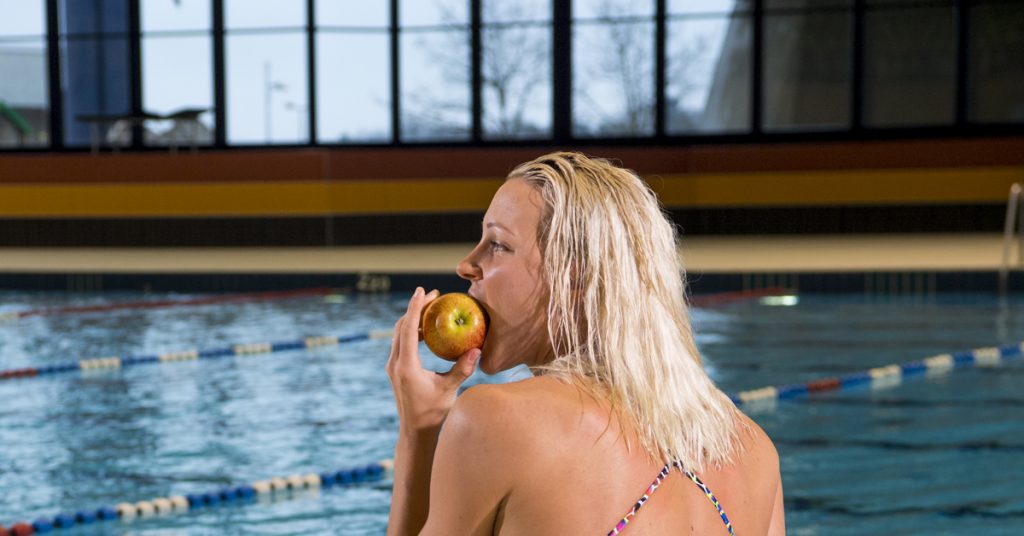Swimmers have a very special kind of relationship with food. Generally speaking, it is never a good idea to take a swimmer out for a meal, because they probably love to eat. From competitive swimmers training (at least) six times-a-week to amateurs, who probably train two or three times-a-week, they can all afford to indulge a bit at the dining table.
So let’s take a look together at the relationship between food and swimming!
Today we are going to look at a key issue that is often ignored: PRE-training nutrition.
So why is it so important? If you have ever asked yourself this question, then a simple metaphor about an engine should be rather self-explanatory. What would happen if you forgot to put fuel into your car? It would soon ground to a halt or, perhaps, would not even start up! What would happen if you did not put the right fuel in your car? It would not run properly and there is a danger you might break the engine!
Our body works in exactly the same way. Without any food to fuel us or with the wrong food, our training would be spoilt. Unlike machines, we human beings have a third problem to take into account: the timing of our “fuelling”. Eating too soon will leave us feeling “empty “during training, while eating too late is likely to cause stomach problems. And because the digestive process requires so much energy, it is a good idea to begin training after digestion has taken place, so that all your energy can be channelled into training.
So, from a nutritional viewpoint, what should you eat before training? Mainly carbohydrates, the main source of energy used, together with a moderate amount of proteins and fats. I will now give you some tips about the 4 times of day when people usually train: morning, lunchtime, early afternoon, late afternoon/evening.
First, however, here is a piece of advice: do not radically change your eating habits! If, for example, you never drink milk at breakfast do not begin doing so just because you have read that it is a good idea. Look for something closer to your normal eating habits.
MORNING TRAINING
A common mistake is to skip breakfast and only eat after training. It is much better to eat at least a small amount both before and after entering the water. At least one hour before swimming you could eat:
- 2/3 rusk-style biscuits or bread and jam/honey
- 1 glass of milk with a teaspoon of coco powder or 1 cup of Italian coffee
or
- 1 cup of warm milk with a handful of cereal
or
- 1 slice of toast
- 1 glass of fresh orange juice
LUNCHTIME/LATE AFTERNOON TRAINING
Sports centres are often full of people at lunchtime and after work. Obviously you cannot have lunch/dinner and then go swimming, so it is extremely important to have a snack at least 1 h/1 h 30 mins before training.
- 1 piece of toast
- 1 piece of fruit
or
- 1 yoghurt with cereal
- 1 piece of fruit
EARLY AFTERNOON/EVENING TRAINING
In this case you have time to eat a meal, provided you have it at least 1 h30/2 h before training. In this case a nice bowl of pasta (but not too much!) served with a sauce (avoid heavy seasoning) will provide more than enough fuel for swimming.
We have spoken about what to eat before training, but what you eat after training is just as important. Do you want to know what to eat after training and why? We will take a look together in a forthcoming article. Bon appétit!
